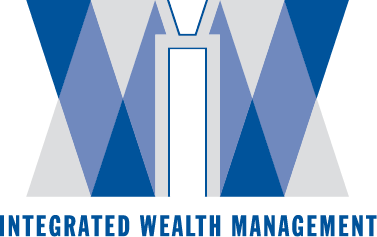While you may have a general retirement timeline in mind, have you nailed down an exact date? Some have their mind set on retiring by their birthday, when it’s time for summer vacation, or at Christmas time. Others may still be thinking about what month makes the most sense in terms of finances, the seasons, work, or other personal preferences.
Let’s look into these 4 common factors that determine when a person may choose to retire.
Financial Considerations for Determining a Retirement Date
Consider your financial situation and what month would be best to retire. Your retirement income, including Social Security and pension payouts, may vary depending on the month you retire. For example, if you retire at the end of the year, you may receive a higher Social Security benefit than if you retire in the middle of the year.
While those scenarios may lead to a person pushing retirement to later in the year, on the flip side, many choose to retire in January if they will be withdrawing money out of retirement accounts. This is especially true if this retirement revenue stream will be considered taxable income. The goal here is to be in a lower tax bracket when utilizing your retirement savings, which may not be the case if you worked part of the year.
Seasonal Factors For Choosing When to Retire
Consider the season in which you want to retire. Some people prefer to retire in the spring or summer months to enjoy the warmer weather and longer days. Others may prefer to retire in the fall or winter months to avoid extreme temperatures and enjoy holiday festivities.
Because boredom is a concern for some, choosing to retire when you can easily partake in your favorite hobbies may be best for you. For many Delawareans, this is often summer if you enjoy being outside, whereas snowbirds may desire to retire before the snow flies so they can safely get out of town. This is a personal decision, but worth considering to set your retirement off on the right foot.
Work Considerations
Consider your work situation and the impact your retirement may have on your employer. Some companies have fiscal years that end in June or December, which may impact your retirement timing. Additionally, you may want to consider giving your employer ample notice of your retirement to allow for a smooth transition.
Aspects of your benefits like annual bonuses and vesting periods should be taken into consideration if maximizing your retirement income is a top priority for you. Medicare or other health insurance coverage may also be a factor. Losing access to health insurance benefits often qualifies you to enroll in Medicare under a Special Enrollment Period without late fees, but general open enrollment for Medicare is from October 15 - December 7.
Personal Preferences
Is there a birthday milestone coming up? A wedding in the family? A plane ticket with your name on it? A garden to tend? Grandkids to enjoy? Deciding when to retire does ultimately come down to personal preference and various life circumstances may be at play. While the above aspects are important to consider, it’s ok to retire on your timeline too! Especially if you feel confident in the roadmap you’ve created for your financial future.
Consider your personal preferences and what month would be most meaningful to you. For example, you may want to retire in a specific month to coincide with a milestone birthday or anniversary. Additionally, you may want to consider the timing of any travel plans or other activities you have planned for retirement.
If you’re having trouble nailing down a retirement date out of fear or uncertainty about the future, it may be time to connect with a trusted financial advisor. At Integrated Wealth Management, not only are we here to build financial plans and assist in building wealth, but we’re here to navigate the future right alongside you. Having a confidant for all things retirement can amplify your peace of mind as you transition to this next stage in life.
About Integrated Wealth Management
Integrated Wealth Management is owned by Burt Hutchinson, CPA, CFP®. We’re a CPA-led organization, meaning we’re here to handle your complex tax scenarios and provide cost-saving insight related to your financial plan.
We’re here to guide you through the 3 stages of retirement:
Uncertainty Stage: When you are within 10 years of retirement and have questions about how to make it work
Stability Stage: When you have reached the financial milestone to retire comfortably and confidently
Reflection Stage: When you are looking to leave a legacy
We are also here to provide experienced, empathetic support during times of loss, such as the death of a life partner. You need confidence and a sense of security to enjoy retirement. As fiduciaries with a fee-only structure, we never receive commissions. Free of ulterior motives, you can be sure we’re focused on your goals.
Continued Readings:
Sources:
“Joining a Plan.” Medicare.Gov. 27, April, 2023. https://www.medicare.gov/basics/get-started-with-medicare/get-more-coverage/joining-a-plan
Disclosure Statement:
This presentation is not an offer or a solicitation to buy or sell securities. The information contained in this presentation has been compiled from third-party sources and is believed to be reliable; however, its accuracy is not guaranteed and should not be relied upon in any way whatsoever. This presentation may not be construed as investment, tax, or legal advice and does not give investment recommendations. Any opinion included in this report constitutes our judgment as of the date of this report and is subject to change without notice.
Additional information, including management fees and expenses, is provided on our Form ADV Part 2 available upon request or at the SEC’s Investment Adviser Public Disclosure website, Past performance is not a guarantee of future results.

